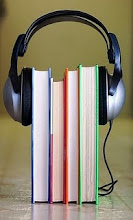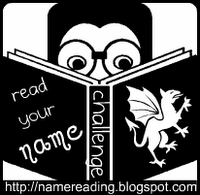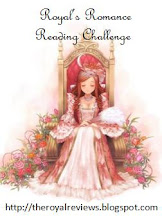Ok girls here are the discussion questions for our next book .... We meet at M's house in 2 weeks time !!
1. Pride and Prejudice is probably Austen's most famous, most beloved book. One element, the initial mutual dislike of two people destined to love each other, has become a cliché of the Hollywood romance. I'm sure you can think of numerous examples.This book has been described by scholars as a very conservative text. Did you find it so? What sort of position do you see it taking on the class system? It has also been described as Austen's most idealistic book. What do you suppose is meant by that?
2. In 1814 Mary Russell Mitford wrote: "It is impossible not to feel in every line of Pride and Prejudice. . . the entire want of taste which could produce so pert, so worldly a heroine as the beloved of such a man as Darcy. . . Darcy should have married Jane." Would you have liked the book as well if Jane were its heroine?Have you ever seen a movie version in which the woman playing Jane was, as Austen imagined her, truly more beautiful than the woman playing Elizabeth?Who doesn't love Elizabeth Bennet?!!
3. Two central characters in Austen have her own first name.In Emma: Jane Fairfax is a decorous, talented, beautiful woman.In Pride and Prejudice: Jane Bennet is everything lovely.What do you make of that?
4. Lydia and Wickham pose a danger to the Bennet family as long as they are unmarried and unchecked. But as a married couple, with little improvement in their behavior, this danger vanishes.In Pride and Prejudice marriage serves many functions. It is a romantic union, a financial merger, and a vehicle for social regulation. Scholar and writer Mary Poovey said that Austen's goal "is to make propriety and romantic desire absolutely congruent."Think about all the marriages in the book with respect to how well they are fulfilling those functions.Is marriage today still an institution of social regulation?
5. Austen suggests that in order to marry well a woman must be pretty, respectable, and have money. In the world of Pride and Prejudice, which of these is most important? Spare a thought for some of the unmarried women in the book-Mary and Kitty Bennet, Miss de Bourgh, Miss Georgiana Darcy, poor, disappointed Caroline Bingley. Which of them do you picture marrying some day? Which of them do you picture marrying well?
6. Was Charlotte Lucas right to marry Reverend Collins?
7. What are your feelings about Mr. Bennet? Is he a good father? A good husband? A good man?
8. Darcy says that one of Wickham's motivations in his attempted elopement with Georgiana was revenge. What motivations might he have had for running off with Lydia? (Besides the obvious. . .)
9. Elizabeth Bennet says, ". . . people themselves alter so much, that there is something new to be observed in them for ever."Do any of the characters in the book change substantially? Or do they, as Elizabeth says of Darcy, "in essentials" remain much as they ever were?
10. Elizabeth is furious with Darcy for breaking up the match between Jane and Mr. Bingley. Although he initially defends himself, she changes his mind. Later when Lady Catherine attempts to interfere in his own courtship, he describes this as unjustifiable.Should you tell a friend if you think they're about to make a big mistake romantically?Have you ever done so? How did that work out for you?
11. How does the visit to Pemberley affect Elizabeth's feelings towards Mr. Darcy? What does she learn about Mr. Darcy as a result of her visit?.
12. At what moment does Elizabeth begin to fall in love with Mr. Darcy"
13. Why does Austen call Elizabeth by her first name and Mr. Darcy by his last name throughout the novel? What is the effect of this naming? What are its social implications?
14. Consider the final resolution of the novel. Is the ending a fairy tale one (recall that fairy tales end with "and they lived happily ever after")? How does the novel expand upon and complicate this ending? Does the ending play up the romance, or the social satire? What is the final message, which the novel leaves us with?
15. What is the significance of the pairings and doublings, which Austen gives us: Jane and Elizabeth, Mr. Bingley and Mr. Darcy, Kitty and Lydia, Mr. and Mrs. Bennet? How do those pairings shift through the course of the novel?


















9 comments:
I can't believe only two weeks until bookclub evening - boy how the months are flying fast.
Hello ladies.
I like your blog a lot and i have something that only you can answer.
i am in search for a detailed answer for question no. 13
"Why does Austen call Elizabeth by her first name and Mr. Darcy by his last name throughout the novel? What is the effect of this naming? What are its social implications?"
Can you please let me know at your earliest convenience.
Jay, I believe it's all about the social class structure. Elizabeth was a nobody with no title or money. The "Mr" informs the reader that Darcy was a gentleman with prospects and hence deserved the respected title of Mr. It assists the reader to immediately understand that these two individuals were quite differently perceived in society and that their union was highly improbable.
I would have said exactly the same thing Kristie ...... I also feel that it is a male/female thing as well .... At the time it was definatly a male domained world unless you where a woman with money and position .... And with calling Elizabeth the whole way through the book makes you feel a more personal attachment to her character ..... Funny how Jane Austen did this with a few of her novels ..... Woman by their first name and men by their Surname ....
Thanks for the question Jay and look forward to reading more comments from you in the future :) ...
Hello Kristy and Irish,
Thanks a lot for your answers.
I had this thing in mind but there is one more very practical answer to this which struck my mind when i saw this :
http://en.wikipedia.org/wiki/File:Pride_and_Prejudice_Character_Map.png
Its an in-depth character map of the play. Now if you see the map, it clearly describes the relation of each and every person of the book. If you notice there are two people with their last names as DARCY. one is FITZWILLIAM and other is GEORGIANA who happens to be a female. But the no. of characters with their last name as bennet are 7 in total(including the parents). An explanation to Why does Austen call Elizabeth by her first name and Mr. Darcy by his last name throughout the novel can be, because if she calls Elizabeth as Ms. Bennet than the readers may get confused with the five sisters, whereas there is only one male character with the last name as Darcy, so she refers him to Mr. Darcy. This is simply because the writer thinks from the writing point of view and the editor thinks according to the readers point of view.
Can i consider this as a possible answer? Kindly let me know.
That makes sense too .... Sometimes we do tend to overthink answers when 9 out of 10 times it is just plain simple ... I had never thought it before but it does make sense .... It would have helped alot if Bronte did the same thing in Wuthering Heights ........ lol
Also I just remembered that in those times the oldest daughter would have been called Miss Bennet and the rest of the daughters would be called by there first name until the oldest would be married then she would be called Miss Bennet ....... I suppose the same would go for Mr Darcy as he was the head of the family and that would be the correct title for him and not by his first name .......
Hope that helps ...
Thats right yes. See ive started to like this now. Kind of addiction. Haha.
Anyways thanks a lot irish.
Regards,
Jay G.
Great points guys - and oh yes, my goodness, Ms Bronte must have been having some serious writers block when she decided to name most of the characters the same.
Amen to that Kristie !!!!!!!!!
Post a Comment